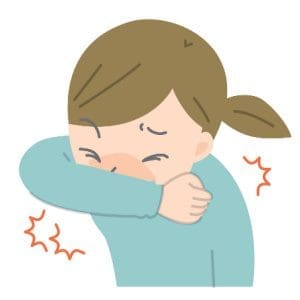Do I have allergies, the flu, or COVID?

Many people look forward to the cooler weather, sights, smells, and activity that fall brings. But the season also sparks certain allergies, marks the start of flu season, and is likely to see another COVID wave. With overlapping symptoms and increased opportunities for exposure, it may be hard to avoid getting sick and harder yet to tell what’s plaguing you when you do. How do you know if you have the flu, allergies, or COVID?
Do I have seasonal allergies?
Hay fever, or allergic rhinitis, is a response to otherwise harmless outdoor or indoor substances. Pollens, dust mites, and pet dander are all naturally occurring and don’t cause harm except through being a trigger for seasonal allergy sufferers. They may experience a runny nose, itchy eyes, congestion, sneezing, and sinus pressure.
Allergy symptoms hang around as long as exposure to triggers continues. By contrast, colds and flu run a course and then symptoms stop.
Unfortunately, once you develop an allergy, there is no way to avoid symptoms entirely. Still, you can reduce your exposure to triggers, and there are effective treatments for symptoms. For example, an over-the-counter antihistamine may do the trick for less severe symptoms. Some allergies are severe enough to require weekly shots.
Most allergy treatments are eligible expenses for FSA and HSA account holders. If you have either type of account, use those tax-advantaged funds to help.
Do I have the flu?
It’s safe to say most of us, if not all, have had influenza at some point. It is miserable, with symptoms ranging from fever and chills to coughs and runny noses to body aches. You may eat right and take supplements to build up your immune system. In addition, you can get a flu vaccination to reduce the likelihood of catching it and lessen the symptoms if you do.
But, let’s face it, flu is hard to avoid entirely.
WebMD has some tips on minimizing symptoms and treating the ones you have. And I have some tips on how to save money in the process. Did you know that you can use FSA and HSA accounts to pay for prescription and most over-the-counter medications to treat flu symptoms?
If you don’t already have an FSA or HSA account, see if your employer will be offering one for 2023 and find out how to enroll. You’ll be glad you did!
Do I have COVID?
More than 95 million Americans have already contracted COVID, some more than once. In case you have not heard, the common symptoms of COVID are a lot like the flu — fever, cough, sore throat, aches, etc.
A strong immune system is essential for fighting COVID, but that’s not always enough, especially if you are elderly, immuno-compromised, or have other chronic conditions. Experts are expecting more waves to come through, so keep personal protective equipment (PPE) on hand to help protect yourself and others.
Federal funding of COVID testing, vaccinations, and basic PPE may be coming to an end soon. However, for now at least, all of these expenses are eligible for FSA/HSA funds, including the purchase of facial masks and hand sanitizer, at-home test kits, and COVID vaccinations and booster shots.
Final Thoughts
No matter what is ailing you, being sick is not a good experience. Worse is not being sure what you have and how to treat it. While I hope the above helps, you should always consult your healthcare provider if in doubt. And feel a little better knowing that your tax-advantaged benefit accounts can help you pay for any needed treatments.
